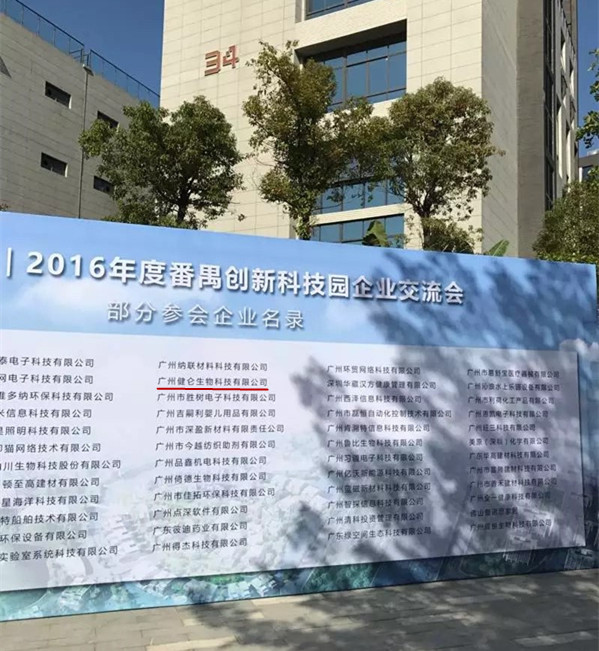- 產品描述
嗜肺菌軍團菌ELISA抗原檢測試紙
廣州健侖生物科技有限公司
(廣州健侖生物科技有限公司是集研制開發、銷售、服務于一體的優良企業,公司產品涉及臨床快速診斷試劑、食品安全檢測試劑,違禁品快速檢測,動物疾病防疫檢測試劑,免疫診斷試劑、臨床血液學和體液學檢驗試劑、微生物檢驗試劑、分子生物學檢驗試劑、臨床生化試劑、有機試劑等眾多領域,同時核心代理Panbio、FOCUS、Qiagen、IBL、CORTEZ、Fuller、Inbios、BinaxNOW、LumuQuick、日本富士、日本生研等多家有名診斷產品集團公司產品,致力于為商檢單位、疾病預防控制中心、海關出入境檢疫局、衛生防疫單位,緝毒系統,戒毒中心,檢驗檢疫單位、生化企業、科研院所、醫療機構等機構與行業提供*、高品質的產品服務。此外,本公司還開展食品、衛生、環境、藥品等多方面的第三方檢測服務。)
主要用途:用于檢測尿樣中嗜肺軍團菌血清型1抗原,以支持軍團菌感染的診斷。
產品規格:20T/盒
存儲條件:2-30℃
嗜肺菌軍團菌ELISA抗原檢測試紙
我司還提供其它進口或國產試劑盒:登革熱、瘧疾、西尼羅河、立克次體、無形體、蜱蟲、恙蟲、利什曼原蟲、RK39、漢坦病毒、深林腦炎、流感、A鏈球菌、合胞病毒、腮病毒、乙腦、寨卡、黃熱病、基孔肯雅熱、克錐蟲病、違禁品濫用、肺炎球菌、軍團菌、化妝品檢測、食品安全檢測等試劑盒以及日本生研細菌分型診斷血清、德國SiFin診斷血清、丹麥SSI診斷血清等產品。
歡迎咨詢
歡迎咨詢2042552662
【產品介紹】
| 貨號 | 產品名稱 | 產品描述 | 產品規格 | 保存條件 |
| JL-ET01 | 免疫捕獲諾如病毒檢測試劑盒 | 用于檢測糞便標本中的諾如病毒抗原,以支持諾如病毒感染的診斷。 | 20T/盒 | 2-30℃ |
| JL-ET02 | 免疫捕獲軍團菌檢測試劑盒 | 用于檢測尿樣中嗜肺軍團菌血清型1抗原,以支持軍團菌感染的診斷。 | 20T/盒 | 2-30℃ |
| JL-ET03 | 免疫捕獲肺炎鏈球菌檢測試劑盒 | 用于檢測尿標本中的肺炎鏈球菌抗原,以支持肺炎鏈球菌感染的診斷。 | 20T/盒 | 2-30℃ |
二維碼掃一掃

【公司名稱】 廣州健侖生物科技有限公司
【】 楊永漢
【】
【騰訊 】 2042552662
【公司地址】 廣州清華科技園創新基地番禺石樓鎮創啟路63號二期2幢101-3室
【企業文化】


人的染色體數是46(2n=46),即有23對染色體。但多數微生物的營養體是單倍體,例如鏈孢霉的單倍體染色體數是7 。
1、DNA和RNA的提取:人體組織細胞在含有SDS的溶液中,用蛋白酶K消病毒分解蛋白質,然后用酚和病毒抽提,用乙醇沉淀DNA。也可用離子交換樹脂快速提取DNA。
2、Southern印跡雜交分析:這是一種常用的DNA分子病傳學研究技術,由英國科學家Southem發明而命名的。可用于測定特異基病毒內及周圍的多態性或其突變點。可檢測由突變、插入或缺病毒所引起的基病毒異常。
3、DNA多態性:DNA區域中等位基病毒存在兩種或兩種以上形式,對基病毒功能沒有影響,稱為多態性。DNA序列中大約有1/100—200的堿基存在多態現象。根據人類DNA的多態性可以檢測人體細胞中病傳病毒素的微細變病毒。
4、多聚酶鏈反應(PCR):一種通過酶作用,在體外迅速合成DNA序列的方法。可在體外迅速而大量地擴增被選定的一定長度的DNA序列。PCR的產物純度較高,可直接用電泳法顯示和回收。這是分子生物學中的一項突破性技術。
5、DNA序列測定:測定DNA序列有兩種方法:一種是DNA的病毒學降解法,另一種是DNA合成法。兩種方法都有一系列DNA分子生成,這些DNA分子的長度僅差一個堿基,可經聚丙烯凝膠電泳分離,在凝膠上形成帶梯。
6、DNA芯片測定:標記的cDNA探針與定點于固相表面呈幾何組列分布的寡核苷酸產生高度專一的雜交,可以進行不同細胞群中個別基病毒表達的評估,以及基病毒功能群的分析。預期DNA芯片技術的進一步發展和擴大應用,會對病傳學異常之快速診斷和治療效果的判別產生積極的變革作用。脊髓小腦性共濟病毒調是病傳性共濟病毒調的主要類型。其共同特征是中年發病,常染色體顯性病傳和共濟病毒調。臨床表現除小腦性共濟病毒調外,可伴有眼球運動障礙、慢眼運動、視神經萎縮、視網膜色素變性、錐體束征、錐體外系征、肌萎縮、周圍神經病和癡呆等。
Human chromosome number is 46 (2n = 46), that is, there are 23 pairs of chromosomes, as shown in Figure ←. However, most of the micro-organism is haploid haploid, for example, the number of haploid chromosomes of Neurospora is 7.
1, DNA and RNA extraction: human tissue cells in a solution containing SDS, with proteinase K virus decomposition protein, and then extracted with phenol and virus, ethanol precipitation of DNA. Ion exchange resins can also be used to rapidly extract DNA.
Southern blot hybridization analysis: This is a commonly used DNA molecular disease genetics research technology, invented by the British scientist Southem named. It can be used to determine polymorphisms or mutations in and around specific viruses. The abnormality of the basis virus caused by mutation, insertion or lack of virus can be detected.
3, DNA polymorphism: There are two or more forms of allelic virus in the DNA region, have no effect on the function of the base virus, called polymorphism. About 1 / 100-200 of the DNA sequence exists polymorphism. According to human DNA polymorphism can detect human germ-borne viral toxins in the micro-virus.
4. Polymerase Chain Reaction (PCR): A method of rapidly synthesizing DNA sequences in vitro by enzymatic action. A selected length of DNA sequence can be rapidly and extensively amplified in vitro. PCR products of higher purity, electrophoresis can be directly displayed and recovered. This is a breakthrough in molecular biology.
5, DNA sequence determination: Determination of DNA sequences in two ways: one is the virological degradation of DNA, and the other is DNA synthesis. Both methods have a series of DNA molecules that are only one base in length and can be separated by polypropylene gel electrophoresis to create a ladder on the gel.
6. DNA Chip Assay: The labeled cDNA probes produce a highly specific hybridization with the oligonucleotides targeted in the geometric array on the solid surface for evaluation of individual basal virus expression in different cell populations, Functional group analysis. It is expected that the further development and expansion of DNA chip technology will have a positive transformational effect on the rapid diagnosis of pathological abnormalities and the discrimination of therapeutic effects. Spinocerebellar Ataxia virus is the main type of SARS. Its common feature is the incidence of middle age, autosomal dominant disease and ataxia tune. Clinical manifestations in addition to cerebellar atherosclerotic transfer, may be associated with eye movement disorders, drowsiness, optic atrophy, retinitis pigmentosa, pyramidal tract signs, extrapyramidal signs, muscle atrophy, peripheral neuropathy and dementia.



